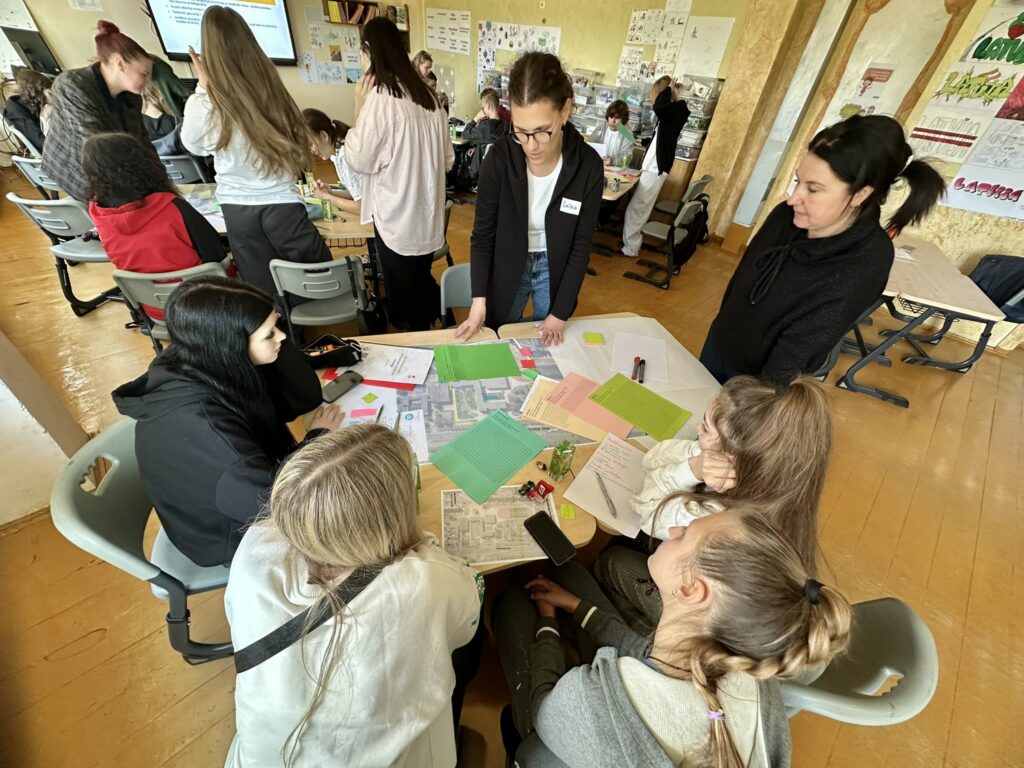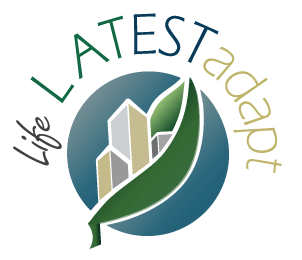
On 8 May, the Riga City Municipality Urban Development Department organised an educational workshop for Grade 8 students of the 89th Secondary School on implementing nature-based solutions to mitigate climate change risks and promote climate resilience. The workshop took place in the framework of the development of the Riga Urban Greening Plan 2027-2031.
The workshop informed students about climate change, biodiversity and ecosystem services issues, as well as the role of nature-based solutions in addressing different challenges. During the workshop, students mapped the school site, assessed the different challenges in the school site (heat, water accumulation, storm water drainage) and how these challenges can be addressed with nature-based solutions. During the workshop, students worked in groups and developed concrete solutions for the school grounds. At the end of the workshop, students presented the solutions developed by each group, explained their choices and considerations, and calculated the cost of the solution.
The pupils proposed different solutions from their own point of view and according to their interests, trying to improve the environment in the areas of the school where they prefer to be. The exercise gave pupils a broader perspective on school environmental issues.



